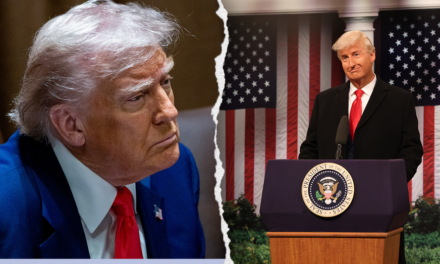In a recent discussion that has sparked varied responses and reflections within political circles, Chuck Todd, the celebrated political analyst and NBC’s chief political director, has articulated a bold opinion regarding the current state of the Democratic Party. He asserted that the decline in President Joe Biden’s approval ratings can largely be attributed to the silence and inaction of key Democratic leaders such as Senate Majority Leader Chuck Schumer. This silence, he argues, not only reflects poorly on party leadership but also fuels a broader crisis of credibility for the Democrats as they head toward the impending elections.
As Biden’s approval ratings hover around historically low levels, many analysts are scrambling to understand the root causes of this decline. In his role as a political commentator, Todd noted that party unity is crucial for any administration seeking to cement its place in history, yet divisions and discontent within Democratic ranks appear more pronounced than ever.
One of the central claims made by Todd focuses on articulation and leadership. He remarked on how the absence of a strong, coherent narrative from top Democrats regarding Biden’s presidency and its accomplishments has left a vacuum filled with uncertainty and skepticism from voters. He emphasized that without a united front or an effective communication strategy, the party risks alienating its base, and losing the support of independents who may be crucial for success in future elections.
Amid rising inflation, ongoing international conflicts, and a rampant culture of discontent within the American populace, many Democrats are reportedly feeling uneasy about the prospects of the upcoming midterm elections. The party’s leadership struggles to connect with the needs and sentiments of everyday Americans. Chuck Todd’s critique underscores these facts been an unaddressed issue, highlighting how Democrats have failed to effectively respond to the challenges posed by Biden’s declining popularity.
Todd’s statement draws attention to an evolving discontent that goes beyond just the approval ratings of a single president. He pointed out that the systemic issues affecting the Democratic Party must be confronted if there is any hope for reinstating credibility and trust among voters. The question looms: How can Democrats regain the narrative and position themselves as the credible alternative to the Republican Party?
To add to this, Todd further emphasized the role of social media in shaping public opinion, particularly about party loyalty. Voters now consume information at an unprecedented rate, and with that comes a greater tendency to express dissatisfaction or loyalty in reaction to the most recent headlines or trending topics. It raises a significant challenge for party leaders trying to keep their members unified. The increased reliance on social media spaces has arguably allowed for dissenting voices to become amplified, potentially overshadowing the core messages that leaders from the party might want to convey.
Biden himself has faced criticisms regarding his ability to lead a party that is fractured on some of the most pressing issues facing the nation. This fracture is exacerbated by endless debates on topics such as climate change policy, healthcare reform, and economic inequality. While Biden made headway on certain policies, many party members feel that his lack of aggressive push on other issues demonstrates a disconnect with the base.
In times past, party leaders like Chuck Schumer would have quickly pivoted to defend their president when faced with harsh public critiques. However, Todd lamented the apparent lack of urgency and proactive communication from Schumer and others in the party’s upper echelons. This has resulted in a confusion among constituents and a perceived lack of direction at a time when clarity is crucial.
Moreover, Todd pointed to the impact of rising Republican rhetoric as a significant factor in Biden’s approval slump. The Republican Party has not shied away from leveraging Biden’s declining numbers, using them as a rallying cry in their campaigns to sway undecided voters and regain control in both Congress and state legislatures nationwide.
As we advance to future electoral contests, it is increasingly important for the Democratic Party not just to respond to Republican attacks but also to present a compelling and unified agenda that reflects the hopes and dreams of all Americans. Without this, the Democrats risk further erosion of their credibility and lead in American politics.
Also at the forefront are calls for the Democratic Party to address fundamental issues that their base cares about deeply—such as economic disparity, healthcare access, and environmental stability. These issues, which resonate strongly among many American voters, have to be addressed with clarity and urgency, instead of allowing them to linger amidst a backdrop of indecision.
The Democratic Party’s future credibility hinges on its leaders’ ability to bridge the gap between Biden and the base that elected him. As Chuck Todd indicates, there must be a visible effort made by leaders like Schumer to exhibit solidarity with the president while also addressing voter concerns head-on. The lack of such action presents not just a political risk, but a larger existential challenge as they navigate an increasingly polarized political landscape.
Furthermore, it would be remiss not to recognize the role of grassroots movements within the party and their influence on Democratic strategy. These movements have the power to reshape the direction of the Democratic Party if they garner more visibility and support. The necessity of listening to all facets of the party—including the progressive left—cannot be overstated in light of the current political climate. Understanding these dynamics can contribute significantly to regaining voters’ faith and re-establishing credibility within the party.
The next few months will provide a critical juncture for Democrats as they seek to redefine their messaging and tackle the various issues prioritized by American voters. Party leaders must be proactive rather than reactive, showcasing an ability to learn from past missteps. Being in touch with the electorate will ultimately decide their fate in the upcoming elections.
While Chuck Todd’s observations may seem harsh, they come at a pivotal moment when Democrats must refocus their strategies to recapture the hearts and minds of constituents disillusioned with the political process. Will they heed this advice, or will they continue to drift as key figures like Todd warn them of impending consequences? Only time will tell.
In conclusion, the discourse surrounding Chuck Todd’s sentiments regarding the silence from Democratic leaders, especially concerning Biden’s ongoing struggles, highlights an immediate need for accountability, unity, and strategic communication. As the 2024 elections loom, the urgency for increased responsiveness and a focus on the issues that matter to voters could not be more apparent.
































